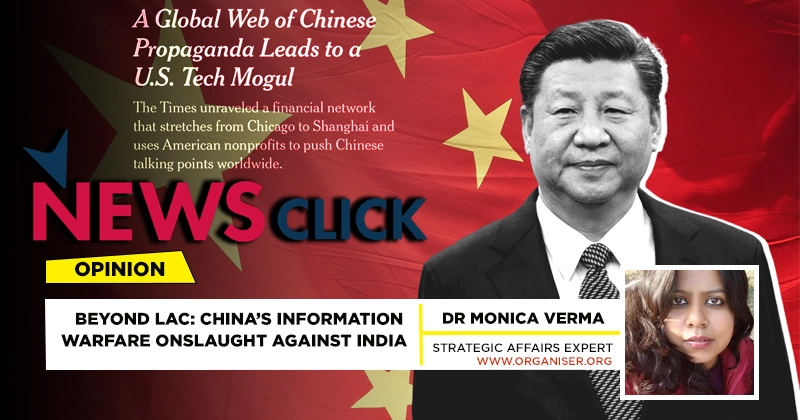At the beginning of the 21st century, political pundits the world over declared that it is going to be a European Century as a united Europe with its collective bargaining power will prove to be an equal match for the United States and the rising Asian powers. However, as the new century unfolded, the reality of the limits that Europe faces started dawning slowly. While the 20th century was dominated by intra-Europe conflict, 21st century indeed came with a promise of a united Europe that had integrated into a single market, a single monetary union, and a single political unit in the form of the European Union.
While Europe was able to influence the Uruguay Round at WTO with the sheer attractiveness of its common market, the paralysis of the Doha round demonstrated that developing countries are not going to remain a silent rule-taker. The rise of BRICS and the growing market potential of China and India showed EU the limitations of its single market. Europe that had quickly integrated to become a bloc that can wield influence all over the world got reduced to a local club that can play the ‘accession card’ on smaller European countries only. When it came to hard power, Europe Union’s vitals started struggling to be stable.
A hard power in International Relations refers to a country or bloc that has the capacity to use economic and military means to influence behaviour or interests of other political units. There are broadly two currencies of hard power — Economy and Military. So how relevant is Europe in today’s world in terms of these two currencies? In terms of economic power, the fact that Europe’s share in the world economy has shrunk significantly can’t be overstated. In 1960, Europe accounted for more than one-third of the world GDP which has come down to just 16 per cent in 2017 with China performing slightly better at 16.5 per cent. The individual countries in Europe which were once considered economic powerhouses have fallen to below 3 per cent while India alone contributes 6 per cent to the world GDP.
Before Europe could recover from the pandemic-inflicted jolt, the Russia-Ukraine war has left the entire world bleeding with an upcoming recession set to hit Europe the hardest
In the pandemic year 2020, EU economy contracted by 6.8 per cent while US contracted with just a half at 3.5 per cent. On the other hand, China grew by 2.3 per cent when most countries across the world including Indian economy also shrunk by 7.3 per cent. Before Europe could recover from the pandemic-inflicted jolt, the Russia-Ukraine war has left the entire world bleeding with an upcoming recession set to hit Europe the hardest. According to a report by Capital Economics, Europe is particularly vulnerable due to its meagre 1 per cent growth rate and its heavy dependence on fuel and food imports. Europe today produces a much smaller share of the world’s output. This was inevitable for both US and Europe. And as things stand today, this loss of relative economic weight would also mean less geopolitical influence that Europe can wield.
When it comes to military, Europe was never regarded as a hard military power. Despite multiple attempts to put up a tangible united defence under EU umbrella, Europe couldn’t ever outgrow the shadow of NATO. Military wise it suffered a huge blow when one of its two most important military powers-Britain left the regional organisation EU through Brexit.
It clearly didn’t turn out to be a European century by any measure. It is an indisputable Asian century where Europe is far behind US and China as a player. Infrastructure is one of the biggest themes of the current Asian century. Here EU’s Euro-Asia Connectivity Strategy is limited in size and scope as compared to the expansive Belt and Road Initiative or even Japan’s Partnership for Quality infrastructure. EACS also has a very defensive tone it to it as it focuses on preventing China’s inroads in Southeast Europe instead of any actual Asian connectivity.
So what is the status of Europe today? A sermonising soft power in an increasingly polarised world? At the beginning of the century, many scholars including Andrew Moravcsik, Mark Leonard and politicians such as Tony Blair declared that Europe will become a Superpower in 21st century. One of the central premise of their prediction was that 21st century unlike the 20th century will be one dominated by soft power and Europe will be best placed to project it. They declared that EU will become the role model instead of US for the world to emulate. What they forgot that soft power can never exist in isolation until a proportionate hard power underwrites it.
The biggest counter to European normative power today is its near-neighbour Russia. Russia actively participated in the Syrian crisis while the role of European powers was reduced to the background. They again couldn’t wield any influence in the international crises in the Eastern Mediterranean, Libya, the Caucasus, Georgia and the Middle East. The ongoing Ukrainian crisis is another big example of Europe’s loss of influence as Ukraine is the most significant ally of Western Countries in Eastern Europe. But not a single European power has been able to go beyond lip-service to deter Russia nor is their collective security alliance NATO proved worthy of doing anything.
The future of Global Order is going to be multipolar. US, China, Russia and India are going to be one of the important poles. EU’s decline will certainly affect its stature. But how a declining power Europe will struggle for relevance in the new world order remains an interesting development to be observed.
Dr Monica Verma is a New Delhi-based strategic affairs expert. She is currently teaching International Relations at NECU as an adjunct faculty and her articles continue to appear on leading outlets.
























Comments